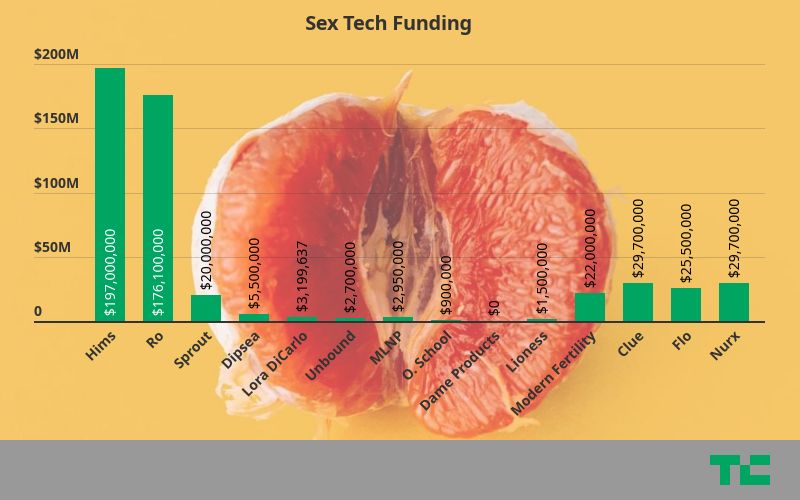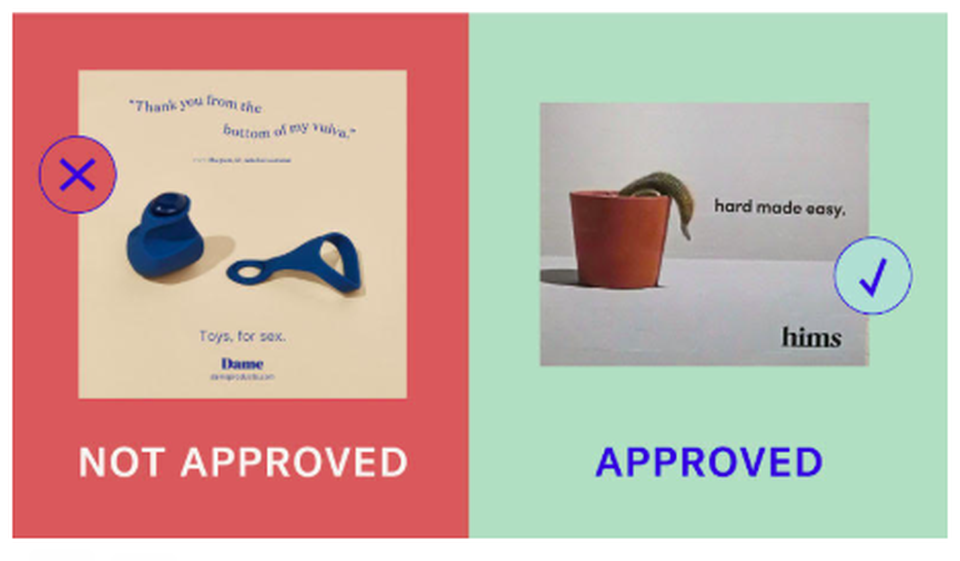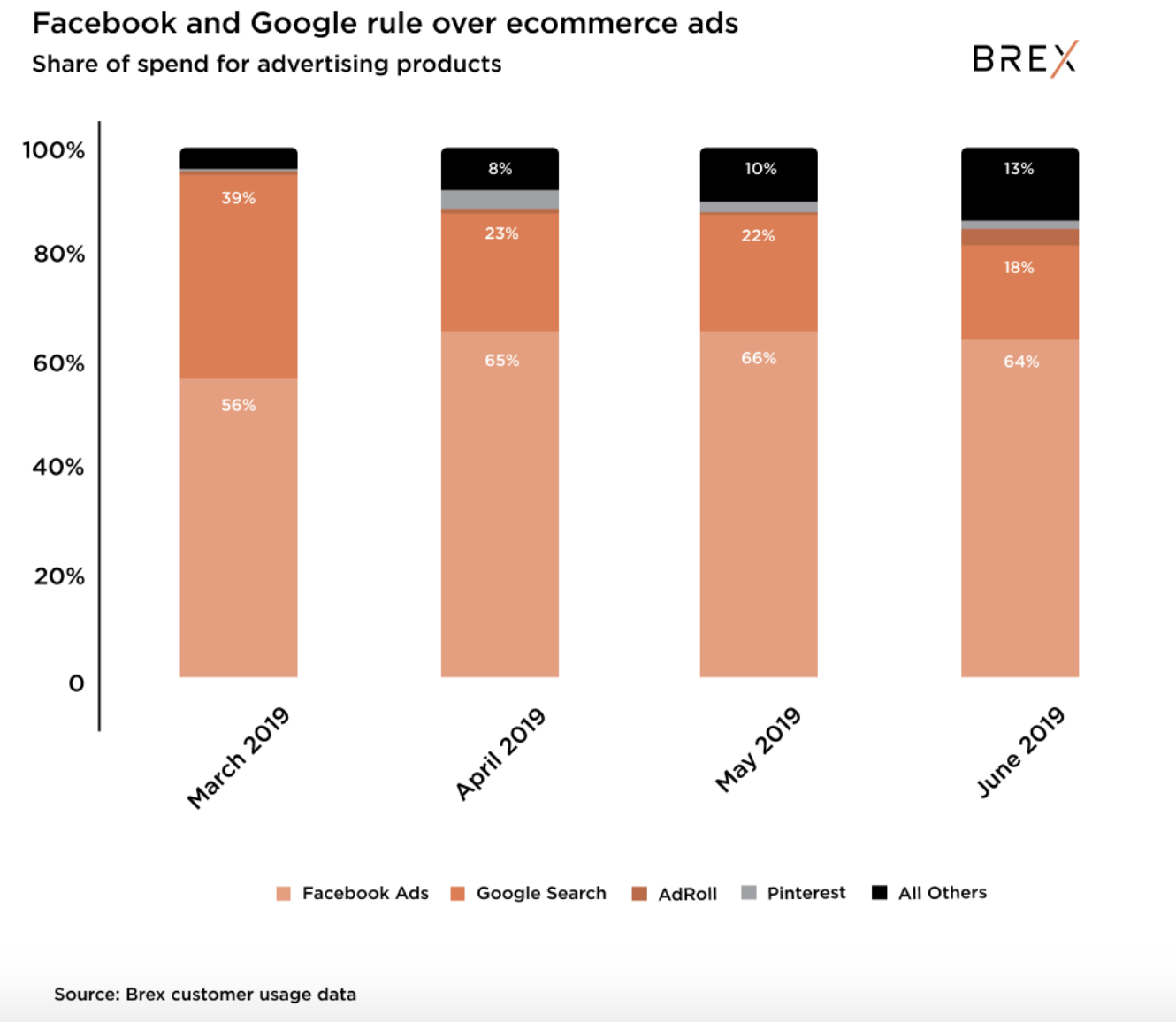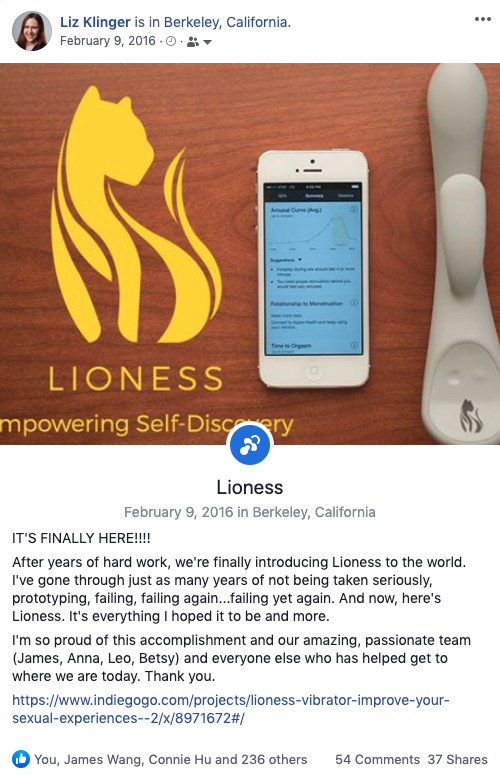Sex, despite being one of the most fundamental human experiences, is still one of those businesses that some advertisers reject, banks are hesitant to financially support and some investors don’t want to fund.
Given how sex is such a huge part of our lives, it’s no surprise founders are looking to capitalize on the space. But the idea of pleasure versus function, plus the stigma still associated with all-things sex, is at the root of the barriers some startup founders face.
Just last month, Samsung was forced to apologize to sextech startup Lioness after it wrongfully asked the company to take down its booth at an event it was co-hosting. Lioness is a smart vibrator that aims to improve orgasms through biofeedback data.
Sextech companies that relate to the ability to reproduce or, the ability to not reproduce, don’t always face the same problems when it comes to everything from social acceptance to advertising to raising venture funding. It seems to come down to the distinction between pleasure and function, stigma and the patriarchy.
This is where the trajectories for sextech startups can diverge. Some startups have raised hundreds of millions from traditional investors in Silicon Valley while others have struggled to raise any funding at all. As one startup founder tells me, “Sand Hill Road was a big no.”
A market worth billions or trillions?
Sextech represents a growing business opportunity and there’s no sign of it slowing down. As Make Love Not Porn (MLNP) founder Cindy Gallop tells TechCrunch, “the market never goes away. We’re all having sex. It’s recession-proof.”
Sextech, as defined by Gallop, is any technology or tech-driven venture that is designed to “enhance, innovate and disrupt in every area of human sexuality and sexual experience.”
The global sexual wellness market is expected to reach $122.96 billion by 2026, according to Stratistics MRC. Sextech, on the other hand, could be become a trillion-dollar market, Gallop says.
But in reality, it’s hard to say how big that market really is, Founders Fund Partner Cyan Banister, who has invested in a handful of sextech startups, tells TechCrunch.
“It’s hard to gauge and the reason why is these businesses aren’t capable of operating at the same scale a normal business could operate at,” Banister says. “They’re kind of cut off at the knees by not being able to advertise. They can’t be on Twitter, Facebook and Instagram in the way other businesses could… It’s hard to know how big these companies could be if we could change the social norms and stigmas associated with these products.”
Banister has invested in O.School using personal funds, and in Unbound via venture firm Founders Fund. Unbound, a sexual wellness startup for women, focuses on sex toys, accessories and jewelry that doubles as pleasure products. In December 2017, Unbound raised $2.7 million from Founders Fund, Slow Ventures and others.
“The objective has always been to take the category mainstream like Viagra,” Unbound CEO Polly Rodriguez tells TechCrunch.
Right now, Unbound is focused on expanding geographically and reaching cis men as well. But Rodriguez says her company is in a vicious cycle of sorts.
“We are completely sustainable,” she says. “We don’t need to raise more money right now but what’s frustrating is not scaling faster.”
Come early next year, Unbound hopes to raise a Series A round, but “it’s so dependent on whether or not we can be allowed on platforms to advertise.” That’s because investors want to know how you’re going to spend their money and drive to sales.
In general, Banister says she looks for sextech startups that have a way around all of the barriers to running a sextech business. That means “masquerading as one thing but is really another thing,” she says.
Unbound is a good example of that, as is Patreon, she says. Patreon is a crowdfunding platform for artists and creators to build a subscriber base. But if you dig into, Banister says, you’ll find nude models and performers on the platform that depend on Patreon for their livelihoods. Though, it’s worth noting Patreon suspended adult content last year due to pressure from payment processors, which led some creators to leave the platform entirely.
“I’m still looking [for sextech startups],” Banister says. “I’m continuing to take pitches and I’m still very hopeful that at some point there will be a unicorn breakout success because that’s what the market needs.”
Banister wanted to invest in Dipsea, an audio platform for sexy stories, but another firm won the deal, she says. In February, Dipsea raised a $5.5 million seed round co-led by Bedrock Capital and Thrive Capital.
“What we were lucky to find was we were telling a story I think connected to investors’ understanding of the space,” Dipsea CEO Gina Gutierrez tells TechCrunch. “The relevant comparison is with romance novels. VCs had an easier time connecting to it because that space is so voraciously consumed.”
Monique Woodard, who also invested in O.School, tells TechCrunch she looks for startups that can achieve venture scale based entirely on a female user base.
“There’s a lot of opportunities there for people who understand it,” Woodard says. “Women are earning more money and gaining more power, and want the tech they use to be relevant to them.”

Companies like Hims & Hers and Roman*, both of which are focused on erectile dysfunction, hair loss and other issues relating to health and sexuality, have raised a boat ton of money in comparison to other startups in the space.
Hims & Hers, which focuses on elements of sexual health, considers itself to be a healthcare company that helps people access the products they need, CEO Andrew Dudum tells TechCrunch.**
“Andrew’s vision was easy to get excited about,” Forerunner Venture Founding Partner Kirsten Green told TechCrunch via email. “He was looking at a system that’s been failing millions of Americans for a long time and asking how can we make this experience better? How can we make it enjoyable and beautiful? And most importantly, how do we make quality care available to more people? Those are big, important questions and we’ve been proud to be a part of the work Hims & Hers is doing to shape the future of healthcare.”
Hims & Hers aims to help people with everything from hair loss to erectile dysfunction to acne to yeast infections to melasma. Hims & Hers doesn’t disclose sales of specific products, but Dudum says sales are “pretty evenly distributed” across the categories.
“The sexual wellness category is a huge part of health and wellness, and it’s obviously a hugely stigmatized area,” Dudum says. “When you talk about women’s sexual health or birth control, or talk about men’s sexual health and erectile dysfunction or premature ejaculation, those are hugely uncomfortable topics to talk about. But we love playing in those spaces because that can enable conversations and give people access to care.”
Hims & Hers got its start with men’s hair loss. When the company decided to get into erectile dysfunction, the response from investors and board members was “awkward,” Dudum says.
“It was super awkward with everyone we spoke to,” Dudum says. “As soon as I brought up erectile dysfunction, everyone kind of went dead quiet. So we had to do a lot of communication around the data to explain to them why this was a really important category for health.”
For example, more than 18 million men in the U.S. are affected by erectile dysfunction, according to the Johns Hopkins Bloomberg School of Public Health. The prevalence of ED is strongly linked with age, cardiovascular disease and diabetes, though, correlation does not equal causation.
Since getting into ED, Hims & Hers has added a product from Sprout Pharmaceuticals, the maker of FDA-approved female pleasure pill Addyi. Down the road, Hims & Hers plans to expand into other areas like sleep and cardiovascular disease, but that’s another conversation for another day.
This month, Sprout raised $20 million in funding for Addyi, is being referred to as “female Viagra.” That figure is notable, but it wasn’t easy to obtain, Sprout CEO Cindy Eckert tells TechCrunch.
“Sand Hill Road was a big no,” Eckert says. “I’ll be honest with you, Megan, I was laughed out of the room.”
Sprout Pharmaceuticals soft-launched last year to enable women to get access to Addyi via telemedicine. That came after Eckert sold her original company to Valeant, now known as Bausch Health, in 2015 and then regained ownership. In trying to raise funding, Eckert quickly found that traditional investors would not support her company, so she found her way to high net worth individuals and others who believed in her mission.
“When it’s sex and it’s women’s sexual pleasure, most people come with their own point of view and they’re putting that point of view on others,” Eckert says. “There’s a societal narrative that says if something is wrong in the bedroom for a guy, it’s biology. For a woman, people say it’s psychology. It’s completely out of step with our scientific understanding. The notion that sex is uniquely complicated for women is ridiculous. Sex is complicated for everyone. We bring with us how we were raised, our religion and so much more. But, by God, men and women alike bring biology into the bedroom.”
What the companies with good chunks of funding all have in common is their respective focuses on health and functionality, whether that be erection for the purpose of penetration and potential insemination or empowering women to make decisions about fertility. Though, it’s worth pointing out the sex tech startups with the most funding offer products geared toward cisgender men.
“I think that companies are not funded at the same level as those ED products because male investors are uncomfortable with the topic of female pleasure and they see sex and sexuality from a completely male point of view,” Woodard tells me. “It’s the male gaze. I think if we had more women, investors who are able to make decisions, offer independent decisions about funding and funding products for women, you would see more products like O.school and Addyi being funded at similar levels.”
Banister, however, believes that it has less to do with gender and more to do with what has the best chances of scaling.
“These companies have shown they unlock something that scale,” she says. “I don’t think it’s that people prefer to invest in male products. It’s just a category that took off. We just have to find that for us — I know that it’s there.”
She argues Hims and Roman have done well because it gets at something men may be embarrassed to talk to their doctors about — their sex lives and hair loss.
“What a founder needs to do is find what that is for women, what is it we’re so afraid of talking about, that we won’t go to a doctor for,” Banister says.
Pleasure versus function
In addition to funding, many sextech companies face barriers pertaining to advertising.
As Rodriguez said, raising that Series A round is dependent on whether or not she can convince Facebook to let her advertise on its platform. From an investor point of view, Woodard says it’s important startups have a way around these advertising barriers.
In July, sextech startups Dame Products and Unbound organized a protest outside of Facebook’s New York headquarters, demanding the company change its advertising policies that they say seem to favor men. They also launched a digital campaign to show how ads for sex toys and products geared toward men are more likely to be approved than those for women, trans or gender non-conforming people.
Hims & Hers is one of the companies that the campaign called out, specifically the ads for Hims and its erectile dysfunction products.

“It makes sense to me why we’re grouped together, in that we’re all trying to have conversations about sexual health in ways that encourage conversation,” Dudum says. “That’s an underlying, uniting force between us and a company like Dame and what they’re doing.”
On Facebook, for example, it’s prohibitive to promote the sale or use of adult products or services except for ads that pertain to family planning and contraception. The policy also requires that ads for contraceptives cannot focus on sexual pleasure or sexual enhancement, and have to be targeted to people 18 years or older.
At the time, Facebook said it has had open lines of communications with both Unbound and Dame Products, and that it’s working to clarify its policies in the near future.
“They’re never going to view sexual pleasure as necessary — only functionality as necessary,” Dame Products CEO Alexandra Fine previously told TechCrunch. “And since the functioning only matters for one sex, then we’re just encouraging shitty sex or at least one-sided sex. Healthy sex should be pleasurable sex. That’s really what I think is important.”
Dame Products develops sex toys to close the pleasure gap. The company has raised less than $1 million in funding, but Fine says the business is going well, despite barriers to advertising and a lawsuit against New York’s MTA.
“It’s tough because I got a taste of what it was like being able to run advertisements for a little while there,” Fine tells me. “I know we’re being stymied for what feels like not a great reason but overall, we’re growing and people are interested in the products we create.”
Sprout has also faced issues with advertising, but has overcome many of them.
“To the credit of the social channels, the evolution was we put up ads and then everything was shutdown, but now we have a rep that we work with and we are educating them on the science,” Eckert says. “They’ve been receptive and we have progressed. When you have studies to document and proof of data, it becomes indisputable, so people have to be willing to let you state what you’re scientifically proven.”
Now, Sprout is spending the bulk of its advertising budget on Facebook and Google. And that’s pretty common across the industry. For e-commerce companies, many of them are very dependent on Facebook with 64% of advertising dollars going toward the social platform, according to Brex’s customer data.

While Sprout has been able to overcome Facebook and Google advertising barriers, Eckert recognizes there still isn’t a level playing field between corporate views of male sexual pleasure and rights, and female sexual pleasure and rights, she says.
Make Love Not Porn, which features videos of what sex looks like in real life, has similarly struggled to advertise. The videos are posted by everyday people as well as by sex educators looking to teach people about consent and how that shows up in the bedroom.
While Gallop has developed plans to overcome certain business obstacles, advertising is still a major barrier. Even though Make Love Not Porn has the funds to advertise, “no one will take my ads,” she tells me.
The New York MTA turned her down, along with many other female-led sextech startups, as have sites like Facebook.
“This is not only business inhibiting,” Gallop says. “This is actively business endangering.”
Ahead of LGBTQ World Pride in New York City this summer, Gallop’s sole investor encouraged her to take out an ad in a location that allowed it to be part of the Manhattan skyline. Gallop found the perfect billboard, but it was on the MTA’s property and the MTA turned them down, she says.
“That was extremely frustrating,” Gallop says. “I basically said, ‘if we are not allowed to be part of the landscape of New York City, we will impose ourselves on the landscape of New York City.’”
That’s where the idea to project her ads onto buildings in Union Square and SoHo throughout the night.
Lioness, the vibrator startup mentioned earlier, has also found creative ways to get around advertising barriers.
“When we did our IndieGogo campaign, instead of a doing a paid ad, I ended up making a baby announcement for a vibrator,” Lioness CEO Liz Klinger tells TechCrunch. “Facebook was prioritizing life events at the time, so it instantly shot up on friends of friends newsfeeds and spread really quickly. I got so many baby ads for the next year.”
That creativity when paid ads aren’t an option is crucial, Klinger says. As annoying as it may be, sextech companies need to find different ways of getting the word out, she says.

Screenshot via Liz Klinger
“I wish that barrier wasn’t there because it’s something so many other companies outside of this space rely on and it’s a metric so many investors rely on,” Klinger says.
The ability to advertise is so important, Gallop says, because it directly impacts her ability to raise funding. Gallop has been able to raise $2 million for her venture, but it wasn’t easy.
Meanwhile, Rodriguez estimates her company has foregone tens of millions of dollars in profits as a result of not being able to advertise.
Inclusion at tech events is also a major barrier for these startups. As mentioned earlier, Lioness was forced to take down its table at a Samsung event last month.
“This isn’t the first time something like this has happened,” Klinger says. “It’s started to become an ongoing thing.”
Klinger is right. Ahead of CES 2019, the Consumer Technology Association revoked an innovation award from the company, which is developing a hands-free device that uses biomimicry and robotics to help women achieve a blended orgasm by simultaneously stimulating the G-spot and the clitoris. In May, CTA re-awarded the company and apologized. Fast forward to July, and CTA decided to officially allow sextech on a one-year trial basis.
“We had everything to do with the reason why they brought that category back into play,” Lora Haddock, founder of sextech startup Lora DiCarlo, tells TechCrunch.
After the CTA revoked the award and subsequent conversations followed, Haddock says it became clear the organization would likely reinstate the honor. So she wanted to use the opportunity to talk about scholarships for women, minorities in tech and the CTA’s policy around sextech.
“We were one of the drivers that pushed forward those policies,” Haddock says. “It’s rather unfortunate that they took a lot of our advice after working with them for a few months under an NDA and then didn’t attribute any of it to us,” she says. “It’s been a little frustrating but I am happy to see that they’re pushing toward change.”
For Klinger, she hopes that her experience, on top of Haddock’s, can raise awareness about the issues sextech startups face, as well as other startups tackling taboo topics face.
Destigmatizing sex
At the root of all of the issues sextech founders of all genders face is shame, Fine says.
“It all comes down to shame and taboo,” Fine says in a response to a question about her biggest challenge in the space. “I think that is the way I can say all of them at once.”
Shame, Fine says, affects how investors and advertisers think about her business, whether it’s from a growth perspective or acceptability standpoint.
“I think destigmatizing is about normalizing and I think what it takes is just honest, direct conversations,” Fine says. “Especially in American culture, we tend to overmedicalize things, which I don’t think is helpful in destigmatizing and deshaming.”
Lora DiCarlo is similarly trying to push to be in mainstream spaces. Although the startup has yet to release its first product, Haddock says it’s on its way — as are five other products in the roadmap.
“Part of that mission to be in mainstream spaces has a lot to do with normalizing the conversation around sex, gender and understanding gender is fluid,” Haddock says. “The more we can actually talk about sex and masturbation, the more we can normalize it. And the more people are comfortable with their bodies, the better patient advocacy we have and better approaches to how we look at gender fluidity.”
That’s also what Hims & Hers aims to do. There’s a lot of shame associated with erectile dysfunction and hair loss. That’s why it’s important for the company to do what it can to destigmatize these uncomfortable medical conditions, Dudum says.
“So much about the brand, so much about the business is actually us telling people, like everyday people, that whatever they’re dealing with is statistically, exceptionally normal, and that it’s okay to deal with this thing and it’s okay to be scared about it. And we’re going to help them through that process. So we really lean into marketing, as you’ve seen, that intentionally tries to spark a conversation for the purpose of normalizing the condition, to encourage people to take care of themselves.”
Safe, consensual and liberating sex
Because sex is one of the most fundamental human experiences, it would be an easy win to have healthy conversations about sexual identity while removing stigma and shame, Rodriguez says.
“Sex ed in our country has gotten worse over time and porn has become the de-facto sex ed. I’m pro porn but if these companies flourish, we as people will have healthy relationships with our bodies and ourselves,” Rodriguez said. “If we can bring sex into more of a mainstream light, then I think we’ll have healthier conversations around it.”
Porn as the de-facto sex education in our society is partly what led Gallop to create Make Love Not Porn about ten years ago. Now, Gallop sees her sextech fund being part of the movement toward better sex for everyone.
Gallop has a lofty goal of raising $200 million for a sextech fund called All The Sky. The plan is to fund radically innovative sextech ventures with a focus on those that are founded by women, Gallop says.
“The most interesting things in sextech are coming from female founders,” she says. “We are finally owning our sexuality. We get the enormous market that is women’s needs and desire, which has historically been taboo.”
Gallop sees a market opportunity in every type of business obstacle she encounters. That’s why All The Sky will also seek to invest in startups that tackle the infrastructural tools needed to fuel sextech, like payments, hosting providers and e-commerce sites.
“I want to fund the sextech ecosystem to maintain and sustain a portfolio for All the Skies, to create a bloody huge sextech ecosystem and three, to monopolistically build out the ecosystem to be a multi-trillion-dollar market,” Gallop says.
With Gallop focusing more on the fund, she’s realized people are more interested in funding the category than some specific venture in it. For potential investors in the fund, they don’t have to worry about doing due diligence on each venture — they just have to trust Gallop’s judgment.
“I have a good grasp on the space,” Gallop says. “I’m able to provide ready-made due diligence. Secondly, there’s also the benefit of your investment being a bit removed from the process.”
Another selling point to potential limited partners is the fact that there is money to be made from socialization and normalization of sex.
“When you socialize and normalize all of it, then you normalize people publicly buying your goods and services, leaving reviews, recommending products and publicly branding themselves as brand ambassadors,” Gallop says.
If Gallop can achieve her mission at scale, she says she envisions a world where parents bring up their children to have good sexual values.
“The only way you end rape culture is by embedding in society an openly talked about and supported and an aspirational gold standard of what constitutes good sexual values and good sexual behaviors,” she says. “When we do that, we end sexual harassment and sexual violence where perpetrators rely on the fact that people don’t talk about sex and women won’t speak up.”
*Roman declined to comment for this story, but its spokesperson said in an email, “We’re not a sextech company; we build technology to make healthcare accessible + affordable.”
**Andrew Dudum and I have mutual childhood friends but are not friends.
